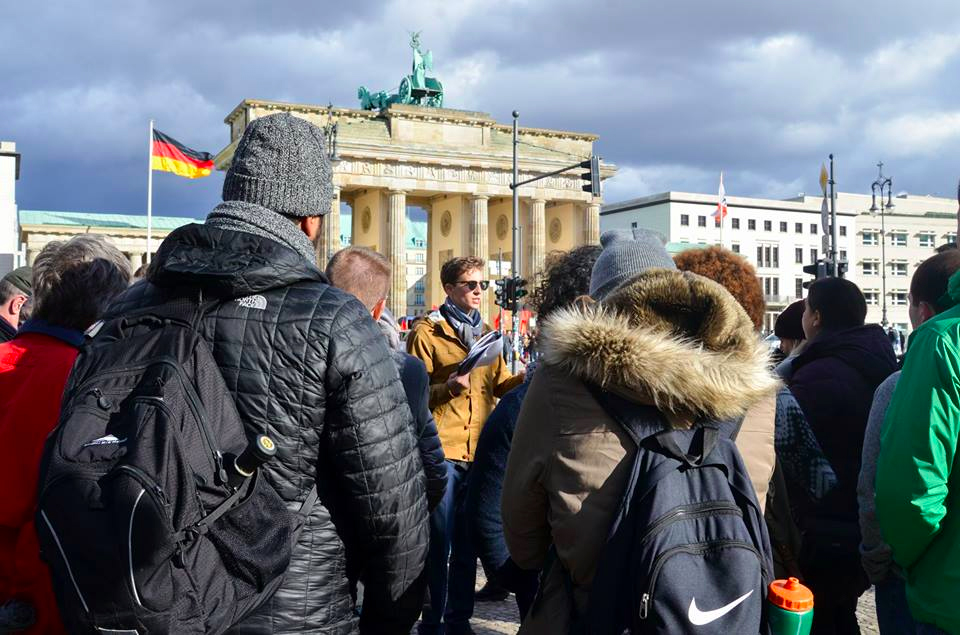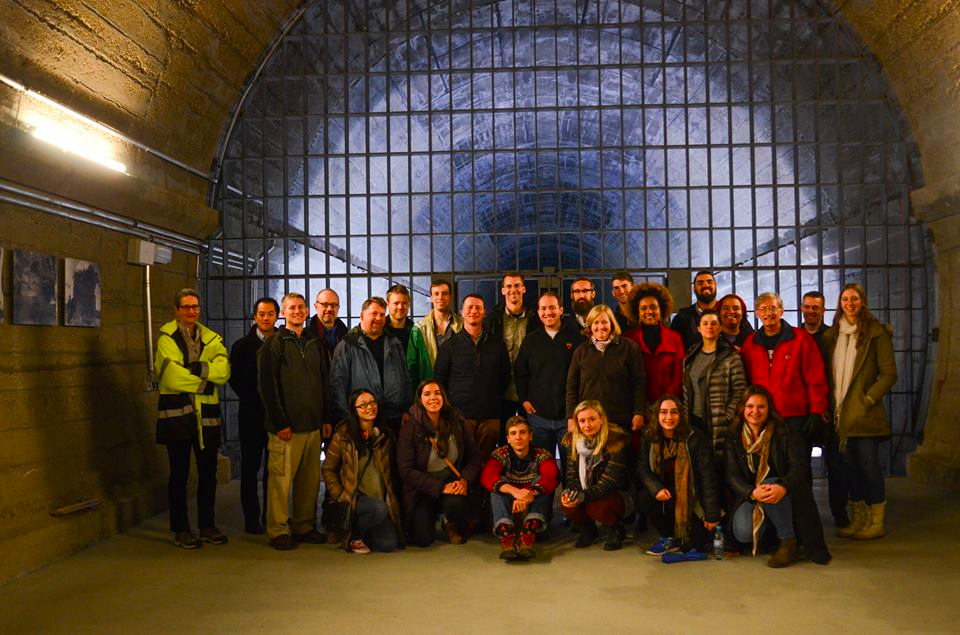Twenty-two students and fellows of the School's Center for International Security Studies (CISS) headed to Germany and Belgium for an eight-day spring break trip to explore and experience Cold War history. In the first staff ride of its kind, the group explored the political, social and strategic decisions from the conclusion of World War II to the creation of NATO and beyond. Participants were required to become experts on one aspect of the Cold War, presenting to the group at different destinations to connect these historic European sites to their importance in grand strategy.
 The trip began in Berlin, where CISS hit the ground running in its exploration of the landscape left by the destruction of World War II. Participant presentations explored how the Allies came to divide the city of Berlin and its ramifications on power politics; as CISS fellows learned, lines were blurred between domestic politics and international relations. A tour of a former Stasi prison illustrated the extent to which Soviet rule transformed and perverted all aspects of daily life. Destinations like Checkpoint Charlie and the Berlin Wall Memorial also shed light onto the differences between the East and West German people, illuminating the scarcity and repression faced by East Germans.
The trip began in Berlin, where CISS hit the ground running in its exploration of the landscape left by the destruction of World War II. Participant presentations explored how the Allies came to divide the city of Berlin and its ramifications on power politics; as CISS fellows learned, lines were blurred between domestic politics and international relations. A tour of a former Stasi prison illustrated the extent to which Soviet rule transformed and perverted all aspects of daily life. Destinations like Checkpoint Charlie and the Berlin Wall Memorial also shed light onto the differences between the East and West German people, illuminating the scarcity and repression faced by East Germans.
Fellows also had the opportunity to explore the Cold War’s lasting legacy in contemporary security and military affairs. The group headed from Berlin to Fulda, Germany, where they visited the Point Alpha Memorial, the Rasdorf Overlook and the Hofbeiber Bowl. All three areas were critical in tracking the planning and operations of the Warsaw Pact. Had the Russians chosen to invade, the Allies would have seen the mobilization in the Fulda Gap from these positions. The group also made a quick stop in Bonn, where they spoke about nuclear proliferation while visiting a West German nuclear bunker, which, in its original state, stretched for nearly ten miles underground. Experiencing the bunker in person and learning about the process of its construction brought the fears of Germans who lived during this time to life — a rare and important insight, 30 years after the crisis had been resolved.
CISS spent its last day in Belgium, where NATO representatives were happy to speak with Princeton students about the organization’s inception, current challenges and lasting importance. Four speakers — James Hursch MPA '85, Dr. Jamie Shea, Col. Andrew Budd and Tamir Waster — illuminated NATO’s development from Cold War into current day. Fellows were also able to spend free time in Belgium experiencing the culture and history of modern-day Europe.
The Center for International Security Studies (CISS) provides a home for the study and debate of national and international security at Princeton University. It supports a variety of activities with the intent of generating new knowledge on issues of fundamental importance and educating the next generation of strategic thinkers and decision-makers. CISS also seeks to establish research and policy links with other institutions around the world.


